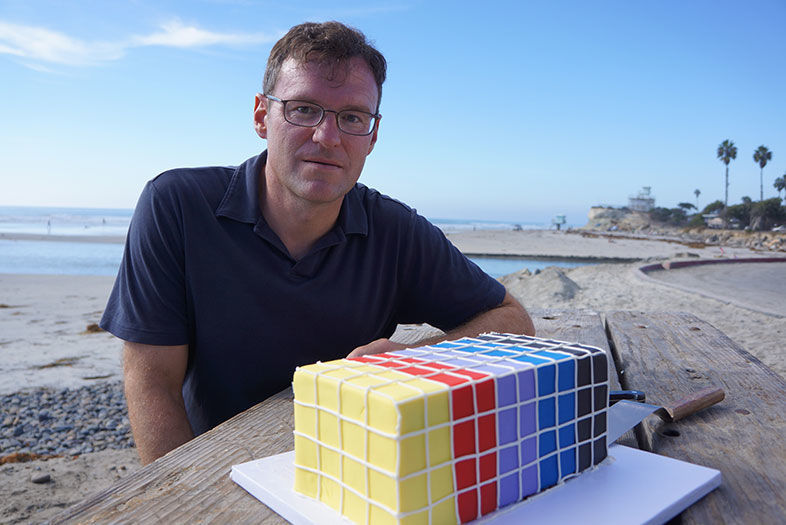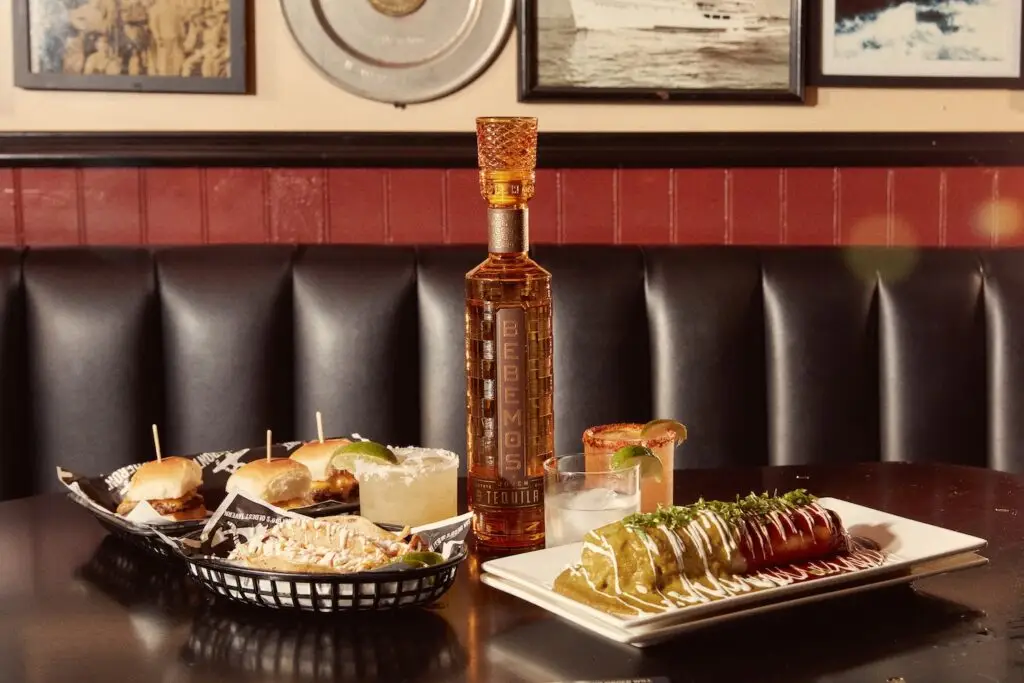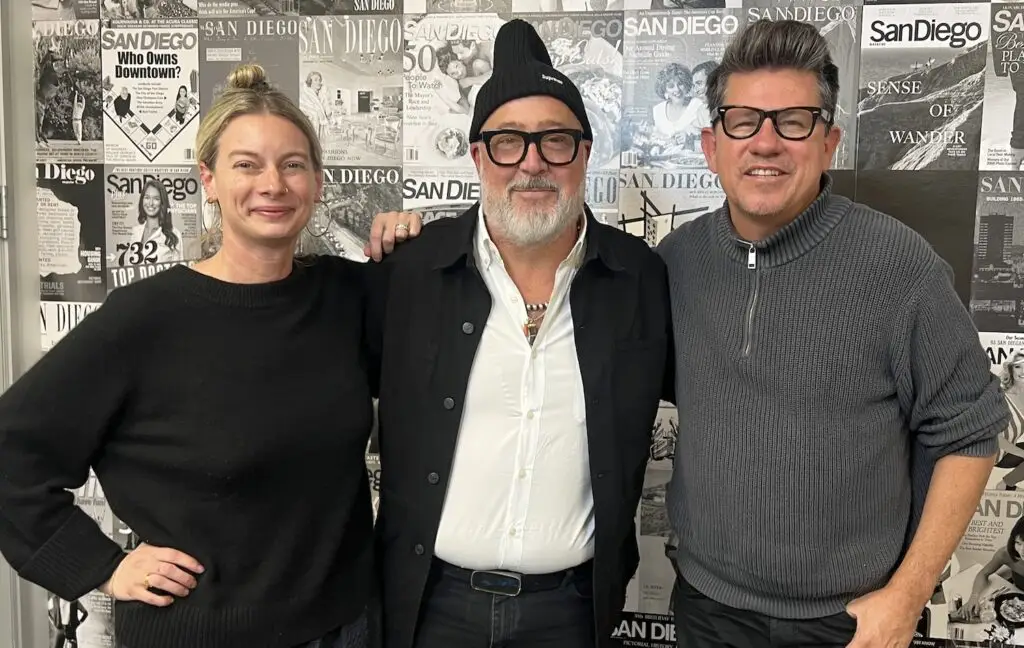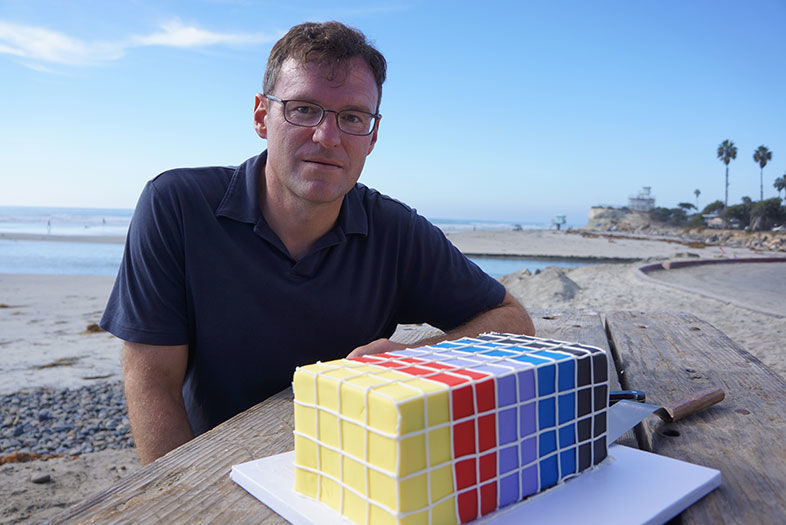Craig Callender is a leading researcher on the concept of time. He’s a professional philosopher, chair of the department at UC San Diego, and paid to unpack out all the mind-bending ideas about time, like is it real? Is it the same thing as space? Is the past really over? Is this moment real? Is it all an illusion? He’s written a book called Time, from the Outside In and published pieces in the New York Times and Scientific American, among others.
I talked to Callender yesterday about time and his participation in tonight’s episode of Through the Wormhole with Morgan Freeman. In between all my own confusion, I learned a couple of interesting things about how we think about time (it’s all wrong!) and how people like Morgan Freeman and the Science Channel find our local researchers and Cardiff State Beach.
SDM: What is time?
CC: The way I think about my research is like this: let’s suppose physics is right and time is the way Einstein says it is. It’s really rubbish, according to physics and the theory of relativity. Physicists tend to dismiss the idea that this moment is happening and that time is flowing. They tend to dismiss those features illusions.
They don’t tend to explain them, just say that they are not real. But if we’re all suffering from this same illusion, there must be some explanation to it, right?
So the physicists are taking it off their desk and putting it on the desk of the psychologists to work on. But psychologists [generally] don’t know it’s on their desk. So it either falls off or in between desks.
That’s where philosophers come in. They are trained in both, and can pick up this project of explaining why critters like us come up with the model of time that we do, even if it’s wrong.
SDM: So if time isn’t what I think it is, then what is it?
CC: Time is a lot like space. Just like Boston and San Diego both exist, so do these different times always exist, things we call the past the present and the future. So there’s no one that’s happening. They’re all happening with respect to themselves. [Ed note: a long conversation then followed about light and sound bouncing off things and nested memories and the evolution of the human brain. Read his article here if you really want to get into it.]
SDM: So what about all the people like Oprah that preach living in the present moment being so paramount to a happy life?
CC: If you don’t take it literally there is some value in not letting past episodes of your life forever haunt you. But literally, it doesn’t make sense.
SDM: So the past isn’t over and the future isn’t yet to come?
CC: Right. It all exists now. Just like Boston and San Diego both exist.
SDM: Wait, what?
CC: It can get pretty hairy thinking about that stuff. The difference between the physical intersection of time and the human experience.
SDM: So after all your years of research, does your head still spin over any of this stuff, or do you really feel confident that it’s all figured out and you understand it?
CC: It’s still a little weird to think there’s some event there on the universe that is my death. It’s there already. That’s hard to get your head around that. I mean, you can understand it, but it’s hard to appreciate.
SDM: Um, yeah.
CC: If you think about time like space. There’s already a place like Boston, where things are happening. They’re not happening here, but they’re there. Boston’s there, and so are those future events. It can lead to deep philosophical questions, like in what sense do you have free will?
SDM: How did the producers of Through the Wormhole find you?
CC: Most of my research is on time, physics and cognitive science. I’ve written books and articles, some of them are popular, like a cartoon book and articles in Scientific American and the New York Times. A producer just called me. They came down for a day and filmed for 11 hours with me for about five minutes of footage in the final show. They don’t want the professor to just be in front of a bookcase in their office. I like to race paddleboards, so they liked that idea. We spent the day at the beach at Cardiff, which is where I go most every day.
SDM: How did you end up at UC San Diego and Cardiff?
CC: I’m from Providence, Rhode Island. My first job was at London school of Economics, and then in 2001, I came out here for an interview. I was sitting looking over La Jolla Cove in January and hadn’t seen the sun in about six months in London. I couldn’t believe that a place like this existed. I came officially in January 2001, and I just love it here. I’m about as settled as you could get, really. I just love Encinitas. I can’t imagine ever moving.
SDM: Did you get to meet Morgan Freeman?
CC: Unfortunately no. I think everyone that’s on the show is disappointed that they don’t get to. The producer himself gets cut out, so it looks like I’m sort of answering a question that Morgan Freeman will say. But he’s recording at the studio.
SDM: Using him for his voice, huh?
CC: More or less. He’s got a great voice.
Through the Wormhole airs tonight, May 6 on Science Channel at 10pm.
Here’s a clip from the show:

Can Time Go Backwards?
PARTNER CONTENT
Craig Callender | Photo courtesy of Science Channel















